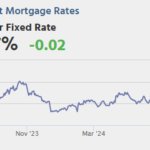The life-threatening condition affects 100,000 people in the UK every year.
Researchers from the Boston University School of Public Health (BUSPH) and the University of Bristol have identified two proteins that may contribute to recurrent stroke and other major cardiovascular events (MACE).
Published in strokeThe study identified new genetic markers of inflammation that may help identify drug targets to prevent or halt disability and death from stroke.
Stroke, which affects 100,000 people in the UK each year, is a serious, life-threatening condition that occurs when the blood supply to part of the brain is cut off.
More specifically, individuals who have experienced an arterial ischemic stroke (AIS) or transient ischemic stroke are at increased risk of developing a secondary stroke or other MACE.
For the study, researchers used genetic information and medical histories from two large biobanks, the Million Veterans Programme and UK Biobank, from 93,422 people who had a stroke, including 51,929 who subsequently developed MACE and 45,120 who subsequently developed AIS.
After conducting ancestry-specific genome-wide association studies to determine the association between DNA and the development and subsequent AIS and MACE, the researchers found two significant genetic variants: rs76472767 near the RNF220 gene on chromosome 1 in the African ancestry GWAS for subsequent MACE, and rs13294166 near the LINC01492 gene on chromosome 9 in the same ancestry GWAS for subsequent AIS.
The research team also identified CCL27 and TNFRSF14, two proteins associated with subsequent MACE but not with early stroke, which are known to activate inflammation and play key roles in the development of stroke and many other chronic diseases and conditions.
“We were able to identify an association between specific molecules involved in inflammation and stroke and MACE outcomes,” said Andrew Elmore, senior research fellow in health data science at Bristol Medical School, University of Bristol, who said this could help identify new drug targets for new therapeutic interventions to prevent stroke progression and recurrence.







